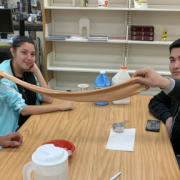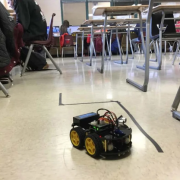Do You Know What Motivates Your Students to Learn?
If you’re a teacher, do you know what is going on in the minds of your students? What motivates them to learn? As you know, some students are extremely motivated to learn, while others are only concerned with earning a passing grade. What is going on?
Some answers to those questions can be found in the writings of an educational consultant named Ken Bain. In 2004, he wrote a book entitled What the Best College Teachers Do for the Harvard University Press. Bain, who is one of the founders of the Best Teachers Institute, made observations in his book that can still be very helpful to teachers who want to improve their teaching abilities.
Bain writes that there are three different kinds of students. While grouping students into just three groups might seem to be too simple, we feel that the division is insightful – and potentially helpful to classroom teachers.
Three Learning Styles
Here are Bain’s three different types of learners . . .
- Deep Learners are students who are profoundly motivated by the process of learning difficult subjects and concepts. They love the process of learning, which serves as a motivator in and of itself.
- Strategic Learners view learning as a means to achieving specific goals. They might learn biology because they know that doing so will help them get into a college with a strong pre-med program, for example. Or they might be motivated to take an SAT-prep class because they know that earning high scores on the test will get them into better colleges. There is nothing wrong with being a strategic learner, of course. But for strategic learners, the motivation to learn is different from that of Deep Learners.
- Surface Learners learn only enough to avoid failure. They’ll study hard enough to pass the next test in a high school science class, for example, and then move on to the next learning activity that helps them avoid failure or embarrassment. Let’s face it – there are many surface learners in our nation’s classrooms. They’re usually doing just enough to get by, without being too interested in real learning or knowledge.
Teacher, Know Your Students!
If you are a teacher, which of Bain’s three types of students are in your classroom? And after you have identified where your students fit into the three categories (“Jack looks like a surface learner, Sue seems to be of the deep variety”), should that affect the way you teach them?
Every teacher seems to hope to find one or two rare Deep Learners because they tend to be extremely rewarding to teach. Teachers can even learn from Deep Learners, who really like to explore the topics that ignite their passion.
But does that mean that teachers should devote less energy to Strategic or Surface learners? That is an interesting question. A teacher’s job is to impart knowledge skillfully, freely and democratically.
To Learn More about Career Planning and Jobs of the Future
Teachers, we invite all your students to explore their career options by participating in our career and college research studies. Students who complete the free career test for high school students will receive information on college and career opportunities matched to their interests.










Leave a Reply
Want to join the discussion?Feel free to contribute!